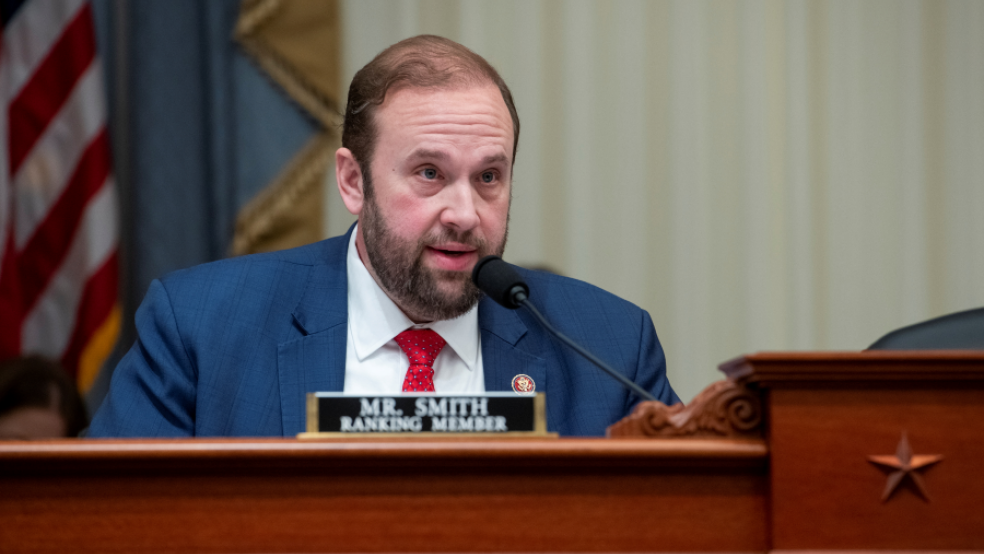With Republicans in control of all major branches of the federal government starting in January, it seems reasonable to assume that it will be smooth sailing ahead for GOP policymakers as they roll out their plans to overhaul the tax system, dramatically reduce spending and carry out President-elect Donald Trump’s plans to deport migrants, boost the oil industry and strike back at foes both inside government and out. But cracks are already beginning to show in the foundation of the new Trump era, as key lawmakers lay out different legislative strategies for how to proceed next year.
Sen. John Thune of South Dakota, the incoming Senate majority leader, said this week that he wants to quickly pass a legislative package focused on border and energy policy, preferably in the first 30 days of the new administration. That package would advance under budget reconciliation rules, allowing it to pass with a simple majority — a crucial requirement for Republicans, who will have 53 seats, too few to clear the usual 60-vote threshold without help from Democrats. Once the border and energy package passes, a second reconciliation package focused on tax policy could be assembled and voted on, later in the year.
House Speaker Mike Johnson endorsed the two-step strategy, telling Fox News today: “You gotta put border at the top of the priority list. We all agree on that.” As for what else is included in the first package and what could wait until the second, Johnson said that is still to be determined. He noted that the timing could be tricky, since the Senate will be occupied with confirmation votes for Trump’s cabinet appointments. “So it's clock management,” he said.
Other Republicans in the House, however, are raising questions about the two-step approach. “Our members need to weigh in on that. This doesn’t need to be a decision that’s made upon high, okay?” said House Budget Chair Jodey Arrington, per Politico. “We’re all unified around the objectives, [but] how we roll it out, the tactics and strategies, still under discussion.”
Rep. Lloyd Smucker, a Republican from Pennsylvania who sits on the tax-writing Ways and Means Committee, said he thinks taxes should have top priority. “I’d like to see us do tax in the first reconciliation,” he told Politico. “Businesses want predictability, so the sooner we can figure this out and have it predictable for them, I think that can be better.”
Ways and Means Chair Jason Smith is also pushing for a tax-first approach. Smith told Punchbowl News that he is concerned that Congress may not have the capacity to push through two reconciliation bills in one year, especially with a tiny majority in the House. “If you look at history, in the last 25 years, every Congress has had only one reconciliation bill become law,” he said. “And we only have a 217 to 215 seat majority. So we think we can pass multiple ones into law? Yeah, I don’t know what island some people [are on].”
Some House Republicans are floating different potential approaches. Rep. Chip Roy, who sits on the Budget Committee, said he wants Republicans to move quickly on a reconciliation bill that includes all of the basic GOP priorities, while leaving the heavy lift of tax reform for later. “I remain of the belief that we ought to deliver very quickly on a reconciliation package that has core tenets of the things we want to accomplish in terms of border and fees and so forth, IRA repeal, then some elements of tax policy,” he said. “And then maybe do a second version that gets at true long-standing permanent tax reform.”
Whichever way it plays out, it could get complicated.
“You almost need a whiteboard for all the moving parts, because it’s more than just: Do you run two reconciliations for the two different open budget years, where this one’s more policy and this one is more tax, financial, debt, deficit-type issues?” said Rep. David Schweikert, who sits on the Ways and Means Committee. “At the same time, are you also calculating your votes” in a House that will need to maintain near-perfect unity in order to pass the GOP agenda.
The bottom line: Republicans have a good idea about what they want to accomplish in the next Congress, but narrow majorities and potentially conflicting priorities could slow their efforts to pass Trump’s legislative agenda.
Taxes
Republicans Already Clashing Over Details of Trump Policy Rollout




